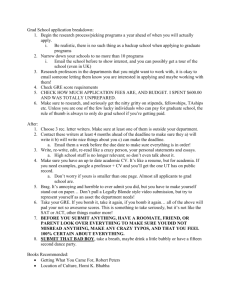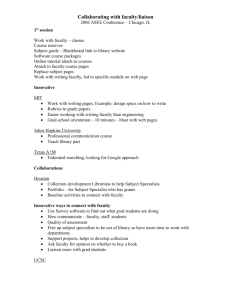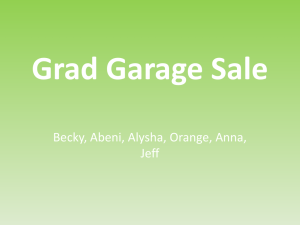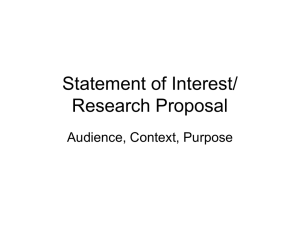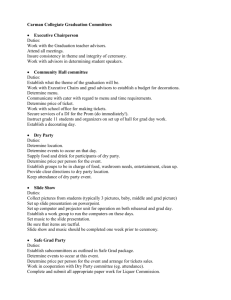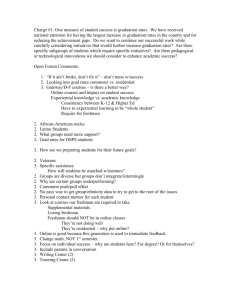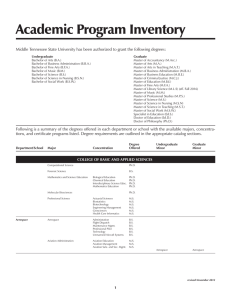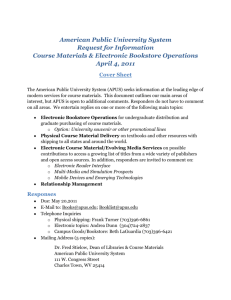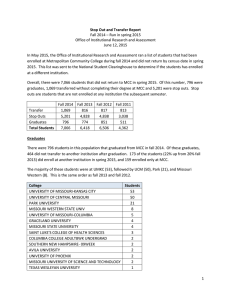STRENGTHS and Weaknesses of the various foundations
advertisement
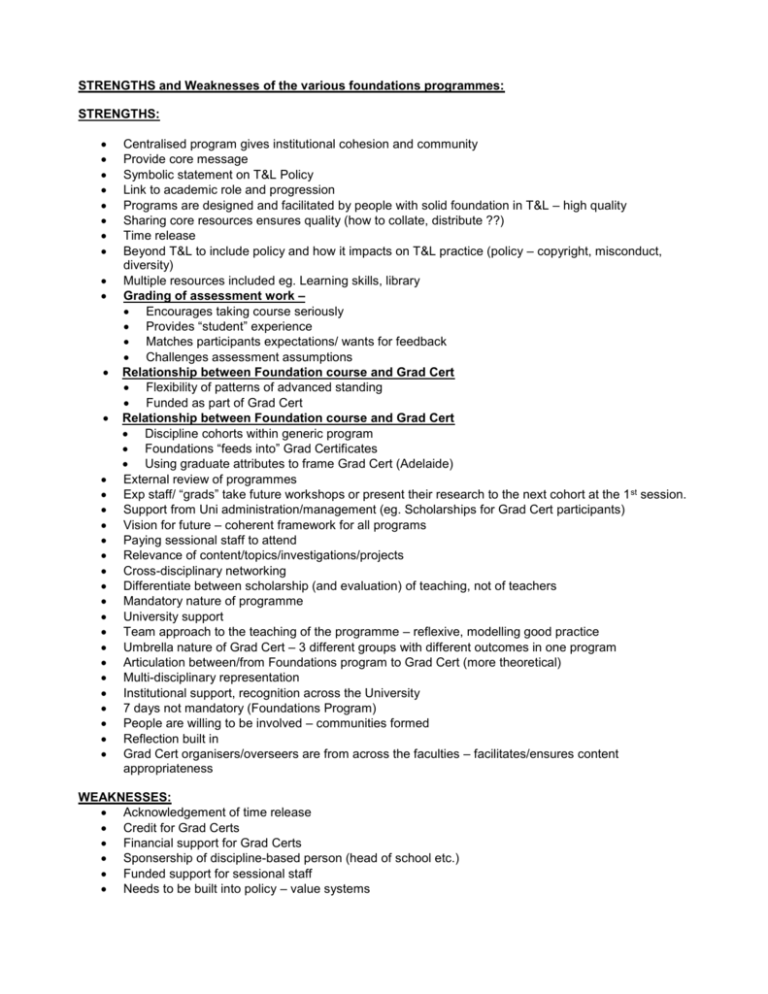
STRENGTHS and Weaknesses of the various foundations programmes: STRENGTHS: Centralised program gives institutional cohesion and community Provide core message Symbolic statement on T&L Policy Link to academic role and progression Programs are designed and facilitated by people with solid foundation in T&L – high quality Sharing core resources ensures quality (how to collate, distribute ??) Time release Beyond T&L to include policy and how it impacts on T&L practice (policy – copyright, misconduct, diversity) Multiple resources included eg. Learning skills, library Grading of assessment work – Encourages taking course seriously Provides “student” experience Matches participants expectations/ wants for feedback Challenges assessment assumptions Relationship between Foundation course and Grad Cert Flexibility of patterns of advanced standing Funded as part of Grad Cert Relationship between Foundation course and Grad Cert Discipline cohorts within generic program Foundations “feeds into” Grad Certificates Using graduate attributes to frame Grad Cert (Adelaide) External review of programmes Exp staff/ “grads” take future workshops or present their research to the next cohort at the 1 st session. Support from Uni administration/management (eg. Scholarships for Grad Cert participants) Vision for future – coherent framework for all programs Paying sessional staff to attend Relevance of content/topics/investigations/projects Cross-disciplinary networking Differentiate between scholarship (and evaluation) of teaching, not of teachers Mandatory nature of programme University support Team approach to the teaching of the programme – reflexive, modelling good practice Umbrella nature of Grad Cert – 3 different groups with different outcomes in one program Articulation between/from Foundations program to Grad Cert (more theoretical) Multi-disciplinary representation Institutional support, recognition across the University 7 days not mandatory (Foundations Program) People are willing to be involved – communities formed Reflection built in Grad Cert organisers/overseers are from across the faculties – facilitates/ensures content appropriateness WEAKNESSES: Acknowledgement of time release Credit for Grad Certs Financial support for Grad Certs Sponsership of discipline-based person (head of school etc.) Funded support for sessional staff Needs to be built into policy – value systems Inadequate funding for attendance Mandatory Links with disciplines Staff feedback Risk Positioning of program Different impact across Uni’s Different framework across Uni’s No link to progression Probation, tenure, promotion (Missing?) link to institutional good teaching practice/principles (AVCC eg.) Lack of focus on disciplinary context Capacity of centres to provide everything for all (wide variety of needs) Making sure curriculum design is coherent, developmental, sequential, not repetitive (mapping needed) Not having a wholistic approach towards research and teaching Lack of institutional support No opportunity for PhD, Masters Need to work hard to get people to follow through Timing - very little “downtime” for academics – when is best time to offer programs Workload issues for academic staff developers Lack of support in schools Absence of special program for tutors Superficial nature Keeping the momentum going Lack of cohesion/communication between different units/programmes (eg. HR, Faculty of Ed., ADU) Lack of wider Uni support for teaching Grading of assessment work buys into a questionable paradigm (including power dimensions) POSSIBILITIES: Exchange – let’s visit each other to witness how things are done in different places Collaborate and share materials, programs etc. Dilemma: Theory/practice balance and level of explication Participants may want practical tips

